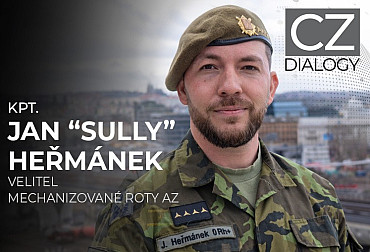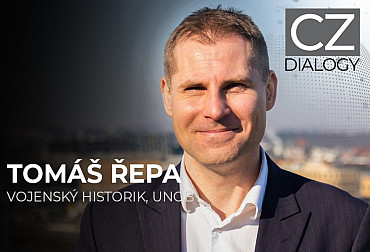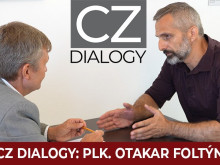Zbyněk Pavlačík: We were very pleasantly surprised by the spontaneous level of solidarity
The organizer of the Czech Air Force Day and NATO Days in Ostrava, the Jagello 2000 association, faced one of the worst scenarios for organizers of such a large and critical event. Just before the start of the event, the air and ground equipment parade had to be canceled due to devastating floods in the Moravian-Silesian region. The chairman of the Jagello 2000 association, Zbyněk Pavlačík, became a crisis manager overnight with two key goals: minimizing damage and saving NATO Days. We discussed this in the latest installment of the CZ DIALOGUES program.
Video: Interview with Zbyněk Pavlačík, Chairman of Jagello 2000 / CZ DEFENCE
The organizer of the Czech Air Force Day and NATO Days in Ostrava, the Jagello 2000 association, faced one of the worst scenarios for organizers of such a large and critical event. Just before the start of the event, the air and ground equipment parade had to be canceled due to devastating floods in the Moravian-Silesian region. The chairman of the Jagello 2000 association, Zbyněk Pavlačík, became a crisis manager overnight with two key goals: minimizing damage and saving NATO Days. We discussed this in the latest installment of the CZ DIALOGUES program.
The organizers were in constant contact with military meteorologists. "When we received information from the military meteorologists that the situation would be highly unusual, we ran two scenarios simultaneously. One was to expedite preparations. We knew the water saturation of the soil would worsen by Saturday, posing a major complication for the final phase of preparations. So, we urged the military, service agencies, and everyone involved to speed up their efforts. In parallel, we prepared for emergency scenarios. The decision was made on Saturday," Pavlačík recalls the challenging days. By Sunday, the organizers had managed to halt all preparations.
"On Saturday, I summoned all colleagues to work on Sunday morning. We had already prepared checklists to ensure we knew whom to contact, as many parties were involved," he added. An event of this scale, organized for a vast audience and with significant financial investment, requires meticulous work to stop and redirect efforts without ruining the event itself.
"We initiated crisis management on Sunday, a non-working day, but it proved successful. First, we aimed to notify all partners via phone to ensure they didn’t hear the news from the media or social networks, as we considered that unprofessional. Simultaneously, we wanted to announce it to the public without unnecessary delay," he explained. Some representatives of the armed forces immediately offered assistance with flood relief, while others initiated a collection drive on the spot. "This financial donation will be handed over to the Ostrava-Přívoz Nursing Home as a spontaneous show of solidarity, reflecting the long-standing cooperation at NATO Days in Ostrava," said Pavlačík.
NATO Days in Ostrava have faced numerous challenges since their inception, now celebrating their 24th edition. The first event, held at the Černá louka Exhibition Centre five weeks after 9/11, was in its infancy, lacking history or references. "When we organized our first event in 2000, the Czech-Polish Aviation Day at Mošnov Airport, it was overshadowed by the worst accident in Czech Air Force history: two MiG-21s crashed in the Highlands four days earlier. We also navigated the difficult COVID-19 years of 2020 and 2021. So, we’ve learned how to manage unexpected crises," Pavlačík reflects.
Over time, NATO Days have become more than just a showcase of air and ground equipment at Mošnov Airport. It has evolved into a diverse program, including excursions, school visits by foreign crews, and a golf tournament for event partners. "The 5th Armaments Conference, organized by the Ministry of Defence’s Acquisition and Armaments Section, was scheduled for Friday, September 19. This event, held biennially, is highly regarded by the domestic defense and security industry, providing insights into future acquisition plans," Pavlačík noted. Friday was also to feature a gala dinner where the Czech and Slovak Transatlantic Award would be presented to German Defence Minister Boris Pistorius. "It’s a complex operation, so we had to stop several hundred soldiers and pieces of equipment poised to mobilize. Communicating this to the public was the most challenging part," he concluded.
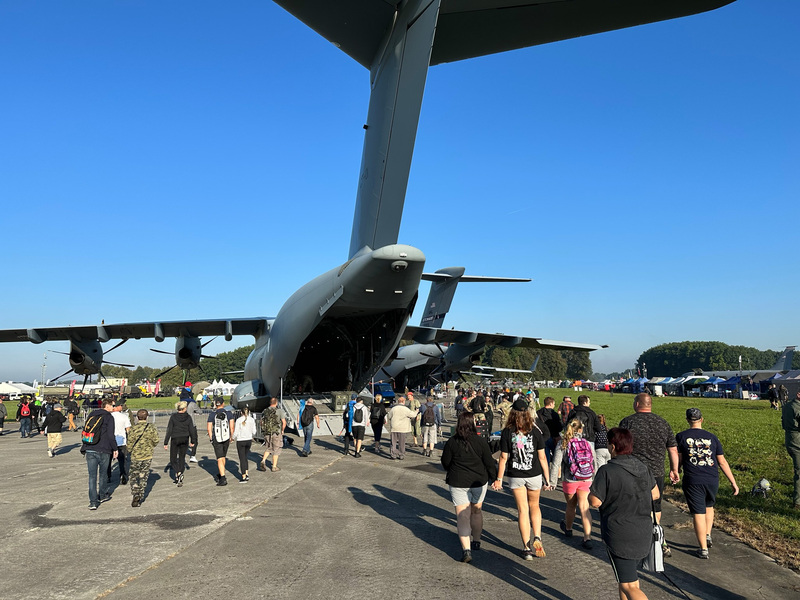
In addition, this conference—precisely because of its focus and participants—contributes to substantive discussions on security and defense. Zbyněk Pavlačík also brings personal experience to the table. "When I was on the expert panel for the Defence White Paper, we managed to 'save' some of the Czech Army’s capabilities, including tanks and artillery. At that time, there was considerable pressure to abolish both. People questioned, 'Why do we need Jince? Why do we need 34 tanks?' Our argument was that while it’s easy to make such decisions, we cannot predict what lies ahead. We used professional reasoning, and it was accepted," Pavlačík recalls. In this context, it is important to revisit 2014, the inaugural year of this conference. "One of our greatest achievements during this period was when the chairmen of political parties and movements in the House, with the exception of the Communist Party of the Czech Republic’s chairman, Filip, signed the Memorandum for the Defence and Security of the Czech Republic. In it, they committed to increasing defense spending to the legendary two percent of GDP by 2019, later postponed to 2024. The White Book of Defence team at the time played a role in preserving all essential capabilities," Pavlačík explains. He added that without this, the 7th Mechanised Brigade and other components of the Czech Armed Forces would likely not be in their current state of rearmament.
In addition, this conference—precisely because of its focus and participants—contributes to substantive discussions on security and defense. Zbyněk Pavlačík also brings personal experience to the table. "When I was on the expert panel for the Defence White Paper, we managed to 'save' some of the Czech Army’s capabilities, including tanks and artillery. At that time, there was considerable pressure to abolish both. People questioned, 'Why do we need Jince? Why do we need 34 tanks?' Our argument was that while it’s easy to make such decisions, we cannot predict what lies ahead. We used professional reasoning, and it was accepted," Pavlačík recalls.
In this context, it is important to revisit 2014, the inaugural year of this conference. "One of our greatest achievements during this period was when the chairmen of political parties and movements in the House, with the exception of the Communist Party of the Czech Republic’s chairman, Filip, signed the Memorandum for the Defence and Security of the Czech Republic. In it, they committed to increasing defense spending to the legendary two percent of GDP by 2019, later postponed to 2024. The White Book of Defence team at the time played a role in preserving all essential capabilities," Pavlačík explains. He added that without this, the 7th Mechanised Brigade and other components of the Czech Armed Forces would likely not be in their current state of rearmament.
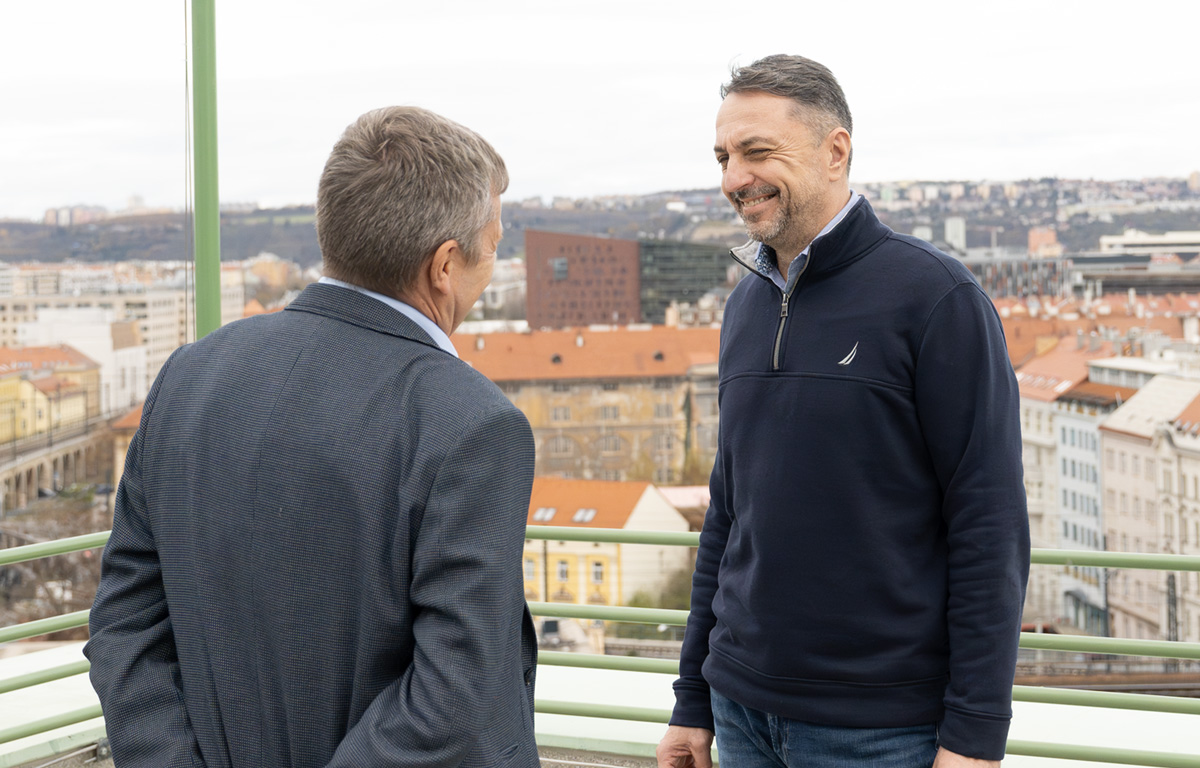
Jagello 2000 cooperates with companies in the Czech defense industry, which are key partners in all the association’s activities. "We have been cooperating intensively and consistently with the defense industry since 2006, when our first-ever partner was Česká zbrojovka Uherský Brod. Without the support of the defense industry—which must be a win-win collaboration—we would not have been able to organize events like NATO Days in Ostrava or host President Clinton in Prague this year," says Pavlačík. He reflects on this year’s canceled 24th NATO Days in Ostrava, mentioning Czech companies that provided significant support to the organizers during a critical situation. "Two companies helped us significantly, namely Česká zbrojovka Uherský Brod, CSG, and Tatra Trucks. Their financial support and assistance formed the basis for starting preparations for 2025," says Zbyněk Pavlačík, chairman of the Jagello 2000 association, during the CZ DIALOGUES program.















